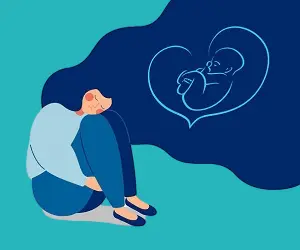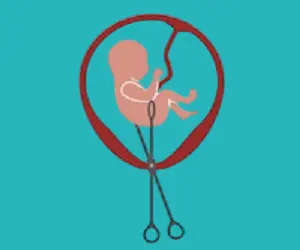Miscarriage is the loss of a pregnancy in its early stages or before reaching the midpoint of its duration. It is one of the most difficult experiences that some women may face. Understanding the symptoms of miscarriage and its treatment methods helps protect the mother's health and prevent potential complications.
What is a miscarriage?
A miscarriage is the natural loss of a pregnancy before the twentieth week of pregnancy. It occurs due to various reasons, such as genetic problems, a weak uterine lining, or chronic diseases. Early recognition of the symptoms of miscarriage is an important step toward prompt medical intervention and protecting the mother's health.
What are the symptoms of a miscarriage?
Symptoms vary from woman to woman, but the most prominent signs that may indicate a miscarriage include:
- Vaginal bleeding that may start light and then increase.
- Crunching or severe pain in the lower abdomen or back.
- Expulsion of tissue or blood clots from the vagina.
- Sudden loss of pregnancy symptoms, such as nausea or breast tenderness.
- A general feeling of weakness or dizziness.
What are the causes of a miscarriage?

Factors that may increase the risk of miscarriage include:
- Chromosomal disorders or genetic defects.
- Infections or chronic diseases such as uncontrolled diabetes.
- Cervical weakness or uterine problems.
- Smoking or exposure to harmful substances.
- Advancing age, especially after the age of 35.
How is a miscarriage diagnosed?
The doctor uses several methods to confirm the occurrence of a miscarriage, such as:
- Clinical examination: to monitor bleeding and the condition of the cervix.
- Ultrasound: to detect the presence of a gestational sac or fetal heartbeat.
- Blood tests: to measure the level of the pregnancy hormone (HCG).
What are the methods of treating a miscarriage?
Treatment depends on the mother's condition and the stage of pregnancy:
- Wait and watch: In some cases, the pregnancy occurs spontaneously without intervention.
- Medication: to help empty the uterus if tissue remains.
- Surgical intervention: to remove pregnancy remains and prevent infection.
- Psychological treatment and support: essential for overcoming the emotional trauma after a miscarriage.
Medications for Miscarriage Treatment
In some cases, your doctor may prescribe medications to help the uterus expel the remaining pregnancy or to prevent infection. These include:
- Misoprostol: Helps the uterus contract and expel the remaining tissue.
- Methotrexate: Sometimes used in cases of incomplete or ectopic pregnancy.
- Antibiotics: To prevent or treat infections.
- Pain relievers: To relieve cramps and associated pain.
- Important warning: These medications should only be used under a doctor's supervision, as each case has a different treatment protocol, and their incorrect use can cause serious complications.
When should you see a doctor?

You should seek medical help if you experience any of the following:
- Heavy and persistent bleeding.
- Severe pain that is not relieved by painkillers.
- Foul-smelling discharge.
- Severe fever.
Ways to Prevent Miscarriage
Although miscarriage cannot be completely prevented in all cases, following some health guidelines can reduce its risk, such as:
- Regular medical follow-up throughout pregnancy.
- Committing to vaccinations and vitamins, especially folic acid.
- Controlling chronic diseases such as diabetes and high blood pressure.
- Avoiding smoking, alcohol, and excessive caffeine.
What are the possible complications of miscarriage?
A miscarriage can lead to physical or psychological complications if medical follow-up is not received, including:
- Severe vaginal bleeding, which may cause anemia.
- Uterine or pelvic infections.
- Retained pregnancy tissue within the uterus.
- Adhesions after surgical intervention.
- Psychological problems such as anxiety and depression after pregnancy loss.
Summary of the symptoms of miscarriage and its treatment methods
Symptoms of miscarriage include vaginal bleeding, abdominal and back pain, and the expulsion of tissue from the uterus.
Treatment methods vary between waiting, using medication, or surgical intervention, with the need for medical follow-up to avoid complications.